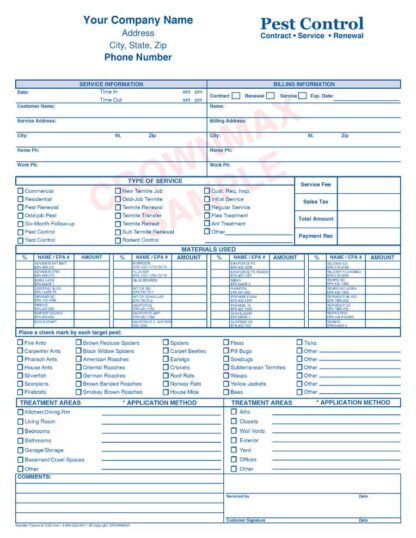Why Archiving is Crucial for Every Company
Safeguarding Your Documents for Success
In today’s digital age, where technology dominates every aspect of our lives, it’s easy to overlook the importance of archiving physical and digital documents. However, archiving is not just about preserving records; it is a critical process that ensures your company’s success, and compliance with legal and regulatory requirements, and prepares you for potential audits. In this article, we will explore the significance of archiving and highlight the key documents that every business should consider archiving.
Archiving: Preserving the Past, Protecting the Future
Archiving involves the systematic storage of inactive documents and business forms, which are no longer in regular use but hold immense value for your company. These static records, whether physical or digital, should not be edited or altered and must be easily retrievable when needed, even if they are not accessed frequently.
Archiving vs. Backups: What Sets Them Apart
It is crucial to understand the distinction between archiving and backing up files. While the two processes may seem similar, they serve different purposes.
Archiving is solely for inactive documents and business forms. Its purpose is to preserve the original files in case they are needed for various reasons. On the other hand, backups are designed for active files used in day-to-day operations. The primary goal of backups is to have a copy of active files to ensure operational continuity in the event of loss or damage to the original files.
Identifying Archivable Documents
While the digital landscape has transformed the way we store information, physical documents still retain significance. Although businesses can reduce paper usage by relying on digital storage, certain documents should be preserved in hard-copy form.
It is important to assess which documents require physical archiving. Considerations may include contracts, legal agreements, financial statements, licenses, certificates, and other tangible records. By maintaining these hard-copy documents, your business ensures accessibility and security, even in the face of technological challenges.
Determining which documents and business forms to archive may vary from one company to another and from department to department. However, there are certain universally recognized documents that should be prioritized for archiving in any organization.
Creating and maintaining an accurate, up-to-date archive goes beyond meeting legal obligations. It safeguards your company’s legal rights, informs strategic planning, and enhances operational efficiency.
Legal Contracts and Agreements
Archive copies of all contracts and agreements, including vendor agreements, client contracts, lease agreements, and partnership agreements. These documents serve as the foundation of your business relationships and should be preserved for reference and potential legal disputes.
Financial Records
Financial documents, such as tax returns, invoices, receipts, and bank statements, are essential for regulatory compliance and financial audits. Proper archiving ensures that you can easily retrieve these records when required, whether for tax assessments or financial analysis.
Employee Records
Archive employee-related documents, including employment contracts, performance reviews, disciplinary actions, and termination records. These records are vital for maintaining a transparent and compliant work environment, resolving disputes, and tracking employee progress.
Intellectual Property
Protecting your company’s intellectual property is crucial for sustained success. Archive patents, trademarks, copyrights, and other relevant documents to safeguard your intellectual assets and establish a solid foundation for future innovation.
Licenses and Permits
Keep copies of licenses, permits, certifications, and regulatory approvals that your company holds. These documents validate your legal operations and compliance with industry-specific requirements.
Health and Safety Documentation
Archive safety manuals, incident reports, risk assessments, and training records to ensure a safe working environment. These documents serve as a reference for maintaining compliance with health and safety regulations and mitigating potential risks.
Corporate Governance Records
Preserve corporate bylaws, board meeting minutes, shareholder agreements, and other governance documents. These records showcase your company’s transparency, adherence to regulations, and responsible decision-making processes.
Historical Data and Reports
Archiving historical data, market research, industry reports, and strategic plans provide valuable insights for future decision-making. It enables you to track your company’s progress, learn from past experiences, and identify trends that can inform your business strategies.
Strategies for Effective Archiving
To establish a robust archiving system, consider implementing the following strategies:
Categorize and Organize
Create a logical categorization system for your archived documents based on their type, department, or relevance. This will facilitate easy retrieval and ensure that documents are stored in a structured manner.
Implement Secure Storage
Choose a secure storage solution for physical documents, such as fireproof cabinets or off-site storage facilities. For digital documents, utilize encrypted servers or cloud-based storage platforms that prioritize data security.
Retention and Disposal Policies
Develop retention policies that outline the duration for which each document should be archived. This ensures compliance with legal requirements while avoiding unnecessary storage costs. Establish guidelines for the proper disposal of documents that have exceeded their retention period.
Regular Auditing and Maintenance
Conduct periodic audits to verify the accuracy, accessibility, and integrity of your archived documents. Update your archiving system regularly, adding new documents and removing outdated or redundant ones.
Archiving is an essential practice that ensures the preservation, accessibility, and security of vital documents within your company. By archiving the right documents, you protect your legal rights, comply with regulatory requirements, and optimize operational efficiency.
Remember, it’s always better to have archived documents and not need them than to need them and not have them.
So, invest in a comprehensive archiving system today and secure the success of your company for years to come.
